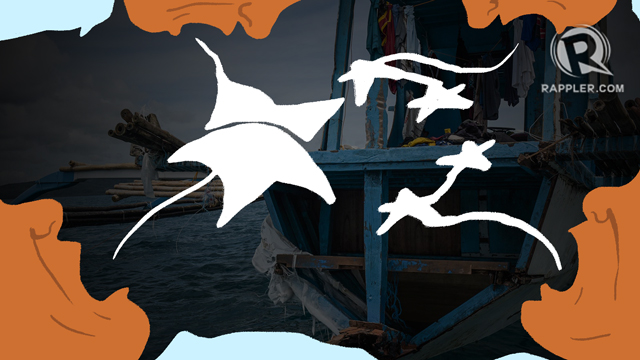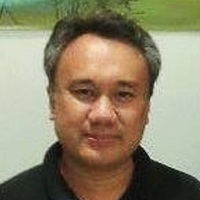
 It has been a source of puzzlement why Defense Secretary Delfin Lorenzana issued a statement strongly condemning the ramming by a Chinese vessel of a Filipino fishing boat, the Gem-Ver, only to walk back from it a few days later. In his original statement released on June 12, Lorenzana said:
It has been a source of puzzlement why Defense Secretary Delfin Lorenzana issued a statement strongly condemning the ramming by a Chinese vessel of a Filipino fishing boat, the Gem-Ver, only to walk back from it a few days later. In his original statement released on June 12, Lorenzana said:
A collision between a Chinese and Filipino vessel (FB Gem Ver1) was reported by Filipino fishermen near the Recto Bank in the West Philippine on the evening of June 9, 2019. The collision sank the Filipino vessel. We denounce the actions of the Chinese fishing vessel for immediately leaving the incident scene abandoning the 22 Filipino crewmen to the mercy of the elements. We condemn in the strongest terms the cowardly action of the Chinese fishing vessel and its crew for abandoning the Filipino crew. This is not the expected action from a responsible and friendly people. We call for the conduct of a formal investigation on the matter and for diplomatic steps be taken to prevent a repeat of this incident.
The spokesman of the Armed Forces of the Philippines Western Command had stated that the incident was far from accidental and likened it to a hit and run. On June 14, the Flag Officer in Command of the Philippine Navy Robert Empedrad chimed in, saying the incident was not a normal maritime accident and that the Gem-Ver was rammed. This was being echoed by military personnel both publicly and internally.
Back to the release of the statement: the ramming incident which happened on June 9. The statement was released by Lorenzana on June 12, which was a very auspicious day. So why was it released on that day? For maximum impact? Only Lorenzana knows why he chose that particular afternoon to release that report of the ramming. Naturally, the timing did have an effect as it was the country’s Independence Day, and it did create a public outcry.
Is there something that can possibly explain this?
As far as some government insiders are concerned, the Chinese are not totally convinced of the Duterte administration’s pro-Beijing stand. This is because Duterte is seen by the Chinese as not being true to his word. According to some, a sore point for the Chinese is the Duterte administration’s very close relations with Japan. In fact Rodrigo Duterte had visited Japan quite recently and suspiciously following that visit in late May the ramming incident happened on June 9. Was that a signal of displeasure that Beijing was showing to Duterte? Some officials within the government entertain the suspicion that the ramming was deliberately done to convey a message to the Philippines of Beijing’s displeasure. Hence, this could all have just been a tit for tat between the two countries.
The thing is, not all within the Philippine government remain totally oblivious to the dangers of dealing with the Chinese. Take for example on the issue of loans, wherein enough warnings have been issued by other countries like Malaysia which have reviewed such loans from China. Of course, what has happened in Venezuela, Sri Lanka, and Kenya remain as stark warnings to the Philippines. There is then a lot of foot dragging on the Philippine side. In fact, in his visit to the Philippines in 2018, Xi Jin Ping was observed to be a bit displeased that nothing really substantial was to be signed between the two countries because the Philippines had at that time appeared to be hemming and hawing.
Hence, the Chinese have been quite aware of the pushback in the Philippines to the pro-China policy of the Duterte administration which is coming from within that very administration and other branches of government. There is resistance to the pro-China policy coming from elements within the Philippine military and several other departments and agencies. Even at the Philippine Congress, especially the Senate. If the Chinese do not see Duterte as trustworthy, so do some parties within the Philippine government not trust the Chinese. This is because the Chinese have a history of bad behavior not lost on the defense and other sectors of the Philippine government. That is why the Philippine Senate killed the proposal to have the Chinese supply the infrastructure and network for the Department of the Interior and Local Government’s surveillance systems.
The main problem with the ramming incident was the manner in which the Duterte administration as a whole sought to address the issue. Confusion, insensitive acts and statements, as were done by other officials, created a backlash against the Duterte administration both locally and internationally. It was a public relations disaster and was greatly mishandled, as seen in the uncoordinated and ill-thought-out actions and statements of Department of Agriculture Secretary Emmanuel Piñol, Department of Energy Secretary Alfonso Cusi, Presidential Spokesman Salvador Panelo, Secretary of Foreign Affairs Teodoro Locsin, and President Duterte himself. They were mostly contradicting what Lorenzana had initially said.
Lorenzana has since walked back from his earlier stronger statement, but some military officers have not, and interest in Chinese grey zone tactics has surfaced among some Filipino officers. In fact a number in the military are not exactly happy with the way the civilian members of the Duterte administration had handled the issue, based on some private conversations with them. It was said that a great opportunity to unite the Filipino people was missed due to the conflicting statements within the Duterte administration and the effort to minimize the incident even before an inquiry had taken place. .
This incident has again revealed that all is definitely not well with Duterte’s pro-Beijing policy from within his own ranks. The military is again showing that it remains unconvinced about Beijing’s sincerity, and it has used the occasion to take a jab at China. It appears that the Philippines has turned out not that totally easy a nut to crack for Beijing. – Rappler.com
Jose Antonio Custodio is a security and defense consultant. He specializes in military history and has post-graduate studies in history from the University of the Philippines. He occasionally teaches history and political science in several universities in Metro Manila.

















